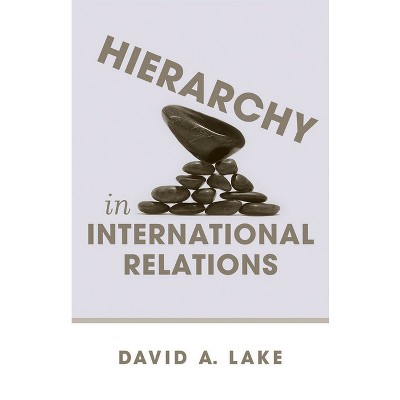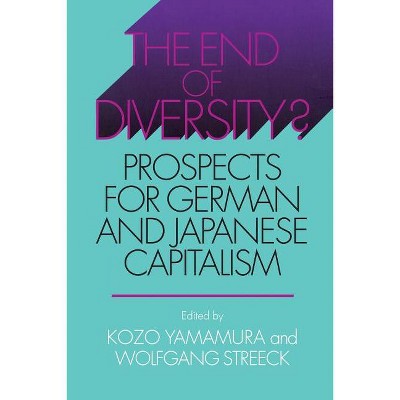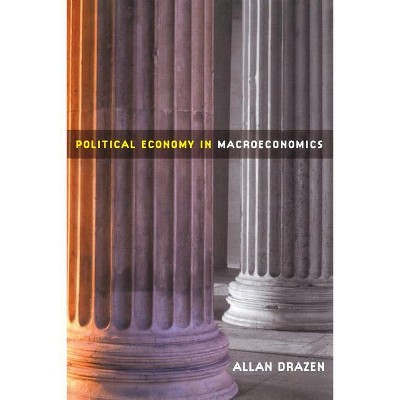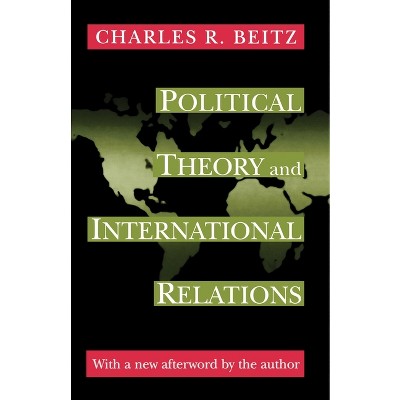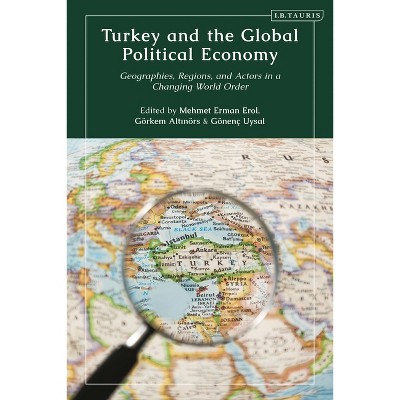Sponsored

The Political Economy of International Relations - by Robert G Gilpin (Paperback)
$65.00Save $3.00 (4% off)
In Stock
Eligible for registries and wish lists
Sponsored
About this item
Highlights
- After the end of World War II, the United States, by far the dominant economic and military power at that time, joined with the surviving capitalist democracies to create an unprecedented institutional framework.
- Author(s): Robert G Gilpin
- 472 Pages
- Business + Money Management, International
Description
Book Synopsis
After the end of World War II, the United States, by far the dominant economic and military power at that time, joined with the surviving capitalist democracies to create an unprecedented institutional framework. By the 1980s many contended that these institutions--the General Agreement on Tariffs and Trade (now the World Trade Organization), the World Bank, and the International Monetary Fund--were threatened by growing economic nationalism in the United States, as demonstrated by increased trade protection and growing budget deficits.
In this book, Robert Gilpin argues that American power had been essential for establishing these institutions, and waning American support threatened the basis of postwar cooperation and the great prosperity of the period. For Gilpin, a great power such as the United States is essential to fostering international cooperation. Exploring the relationship between politics and economics first highlighted by Adam Smith, Karl Marx, and other thinkers of the eighteenth and nineteenth centuries, Gilpin demonstrated the close ties between politics and economics in international relations, outlining the key role played by the creative use of power in the support of an institutional framework that created a world economy. Gilpin's exposition of the in.uence of politics on the international economy was a model of clarity, making the book the centerpiece of many courses in international political economy. At the beginning of the twenty-first century, when American support for international cooperation is once again in question, Gilpin's warnings about the risks of American unilateralism sound ever clearer.From the Back Cover
This book is both a personal statement and a synthesis of certain recurrent and prevalent themes in the field of international political economy. Although I have endeavored to keep the personal and synthetic elements distinct from one another, I have presented my own views on selected questions of international political economy and have also incorporated those ideas and theories of others that are most relevant to the theses being developed.Dimensions (Overall): 9.32 Inches (H) x 6.16 Inches (W) x 1.13 Inches (D)
Weight: 1.46 Pounds
Suggested Age: 22 Years and Up
Sub-Genre: International
Genre: Business + Money Management
Number of Pages: 472
Publisher: Princeton University Press
Theme: Economics
Format: Paperback
Author: Robert G Gilpin
Language: English
Street Date: June 21, 1987
TCIN: 94134694
UPC: 9780691022628
Item Number (DPCI): 247-06-6626
Origin: Made in the USA or Imported
If the item details aren’t accurate or complete, we want to know about it.
Shipping details
Estimated ship dimensions: 1.13 inches length x 6.16 inches width x 9.32 inches height
Estimated ship weight: 1.46 pounds
We regret that this item cannot be shipped to PO Boxes.
This item cannot be shipped to the following locations: American Samoa (see also separate entry under AS), Guam (see also separate entry under GU), Northern Mariana Islands, Puerto Rico (see also separate entry under PR), United States Minor Outlying Islands, Virgin Islands, U.S., APO/FPO
Return details
This item can be returned to any Target store or Target.com.
This item must be returned within 90 days of the date it was purchased in store, shipped, delivered by a Shipt shopper, or made ready for pickup.
See the return policy for complete information.
Trending Non-Fiction


Highly rated
$19.31
was $20.98 New lower price
Buy 2, get 1 free select books
4.1 out of 5 stars with 54 ratings

$19.58
MSRP $29.00
Buy 2, get 1 free select books
4.7 out of 5 stars with 11 ratings

$4.59
MSRP $7.99
Buy 2, get 1 free select books
4.8 out of 5 stars with 117 ratings

$6.20
MSRP $10.95
Buy 2, get 1 free select books
4.8 out of 5 stars with 33 ratings

$7.09
MSRP $9.99
Buy 2, get 1 free select books
4.9 out of 5 stars with 45 ratings
